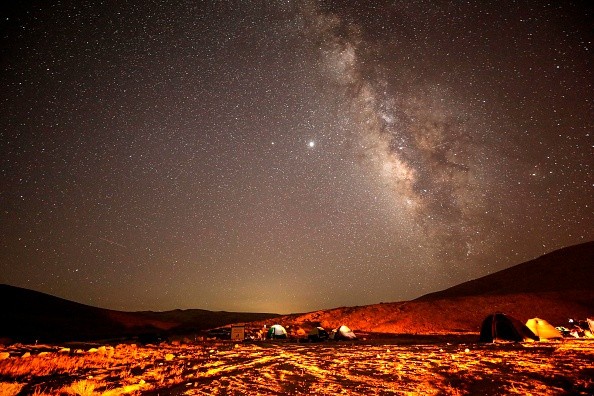Astronomy lovers will see much-awaited astronomy events this December 2022, from the cold moon and magnificent meteor showers starting this month.
As many were excited about the coming Christmas and winter season, a recent forecast showed that the meteorological winter started on December 1, 2022. Winter lovers could also expect the astronomical winter on December 21, 2022.

The temperatures in portions of the United States are set to drop due to the Arctic and colder air. Snow and rain could emerge, which could lead to travel delays.
However, a recent AccuWeather astronomy news revealed that amazing and much-awaited astronomical events would unfold in the sky. It is a rare moment for astronomy lovers to see spectacular and rare sightings.
This December 2022 will have more astronomy events despite rain and snow emerging in portions of the United States.
According to the news, a full cold moon could unfold in the sky on December 7, 2022. The report explained that the cold moon would be brighter, appearing close to Mars.
The report explained that December's cold moon is also known full moon, which comes from the arctic air in North America. NASA explained that the cold moon was coined, indicating that December is an ideal month when temperatures become colder.
On December 8, 2022, astronomy and Mars lovers could see the planet brighter than usual. If the weather is ideal or not cloudy, stargazers will have a better or best view of the said planet. The report explained that the planet Mars managed to reach Mars opposition every 26 months.
After the week, shooting stars are expected to emerge from December 13 to December 14, 2022. The Geminid meteor shower could unload up to 100 meteor showers in an hour during mid-December.
NASA explained that the Geminid meteor showers are considered the most active and reliable meteor showers that stargazers could see on December 13, 2022.
The Geminid meteor showers could have the best view if the sky is clear. NASA added that the meteor showers would be fast and bright.
Also Read : Studying Surface Waves for the First Time Could Help Decipher How Mars Formed and Evolved
The excitement about the astronomical events this month is not yet over. Recently, the meteorological winter began on December 1, 2022. The report said the winter solstice is expected on December 21, 2022 (4:48 p.m. EST). Meanwhile, December 21 will set the astronomical winter in the Northern Hemisphere.
Ultimately, stargazers could see the Ursid meteor shower on December 21 to December 22, 2022. Unlike the Geminid meteor showers with 100 meteor showers per hour, the Ursid meteor showers could have ten meteors per hour.
Astronomy event preparations
This month is packed with astronomical events that are rare and much-awaited. It is advisable to prepare before astronomy dates. Checking the weather condition in your area or the best places for the meteor showers would be recommended.
Furthermore, a camera is important to save the magnificent moments of your meteor sightings, ensuring your cameras are fully-charged and ready.
Related Article: NASA Orion Space Mission to Travel 270,000 Miles Reaching Farthest Distance From Earth
For more similar, don't forget to follow Nature World News.
© 2025 NatureWorldNews.com All rights reserved. Do not reproduce without permission.





